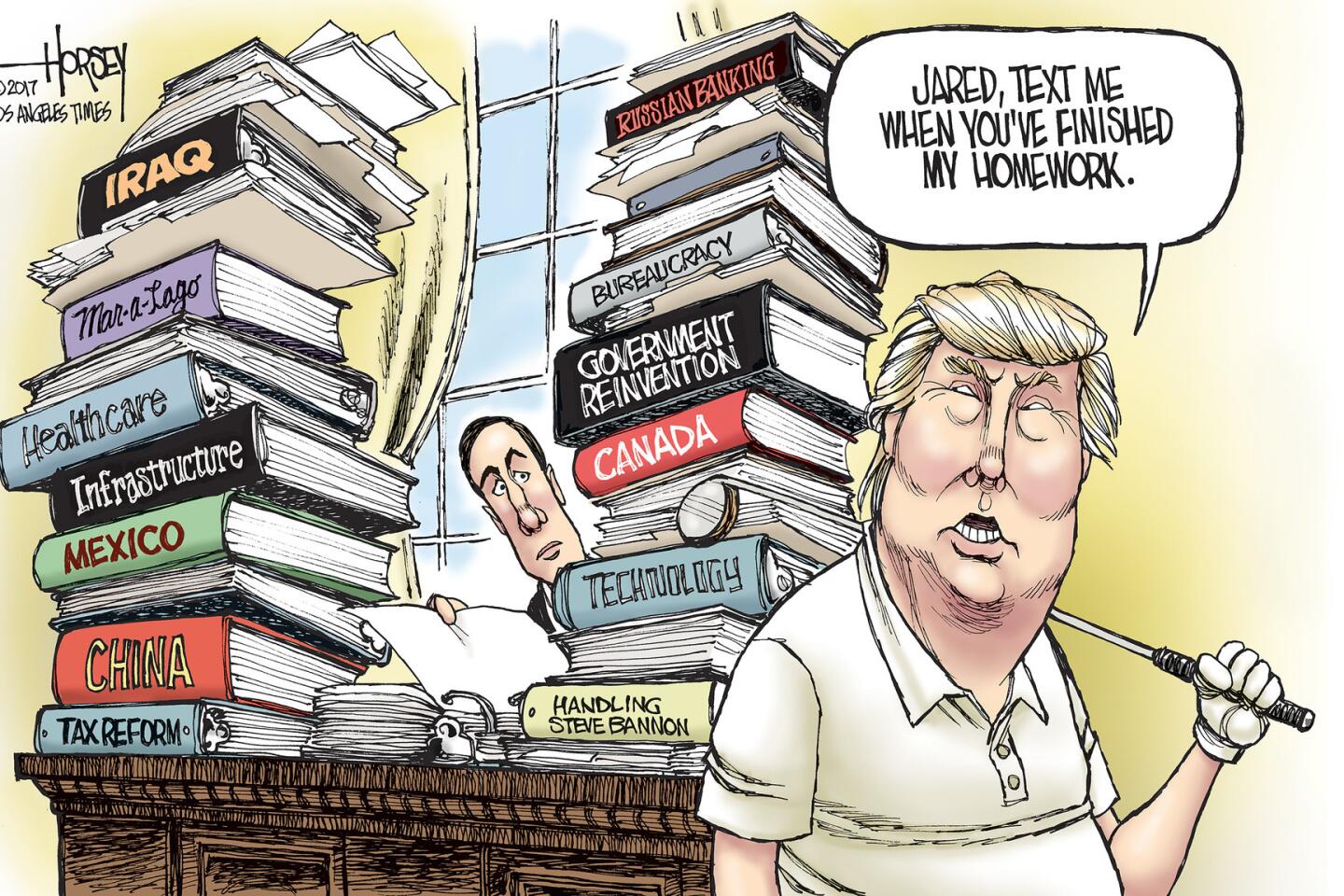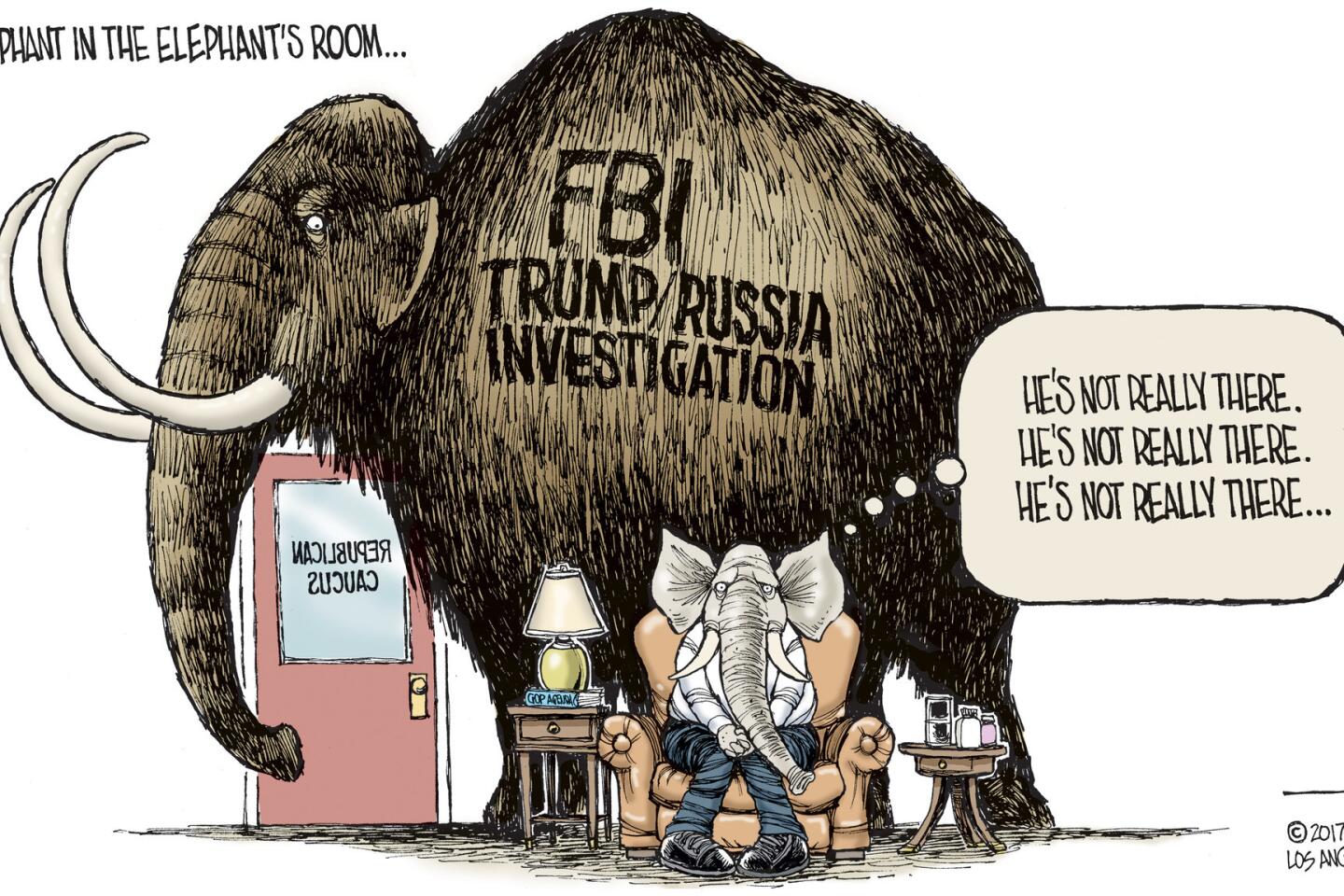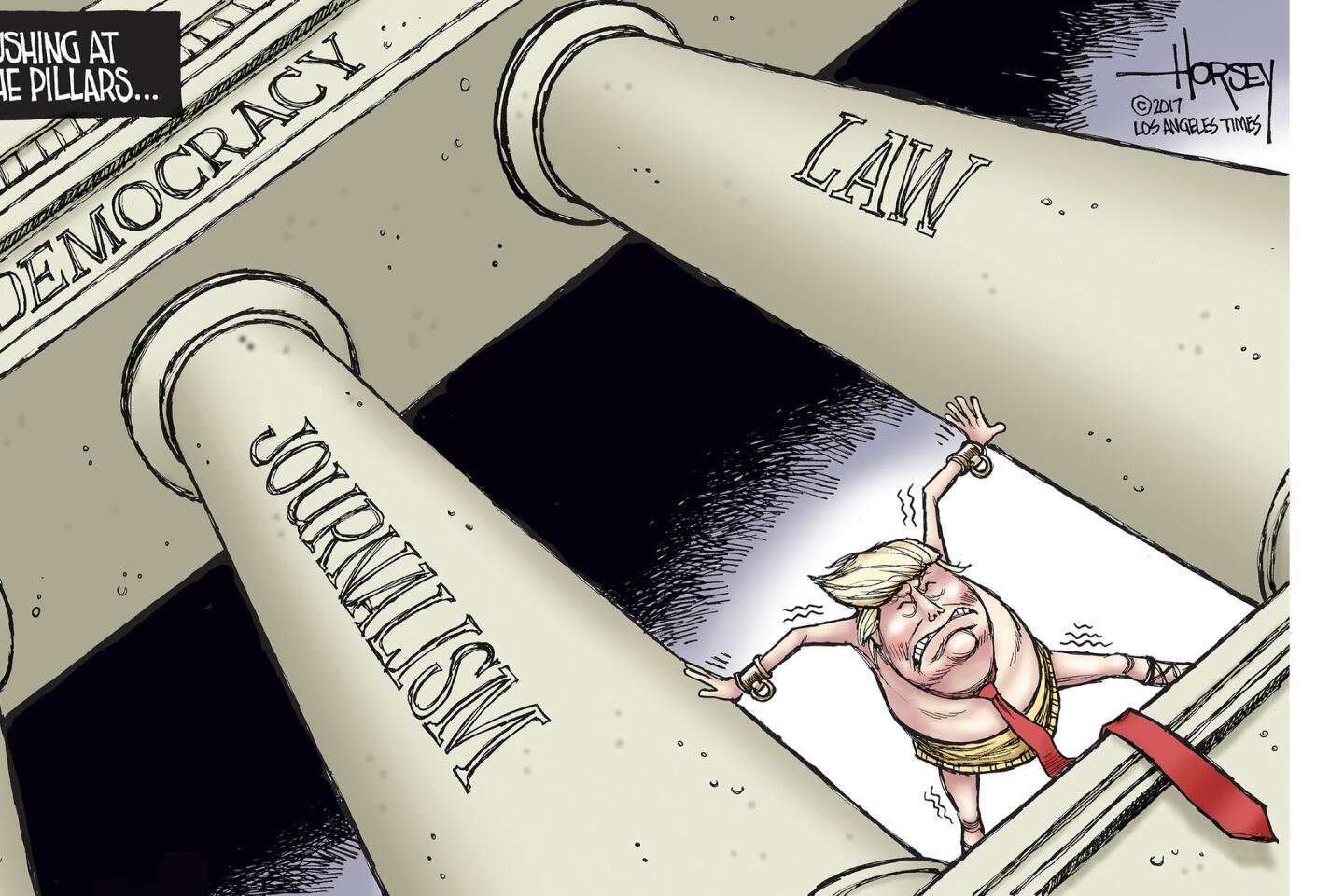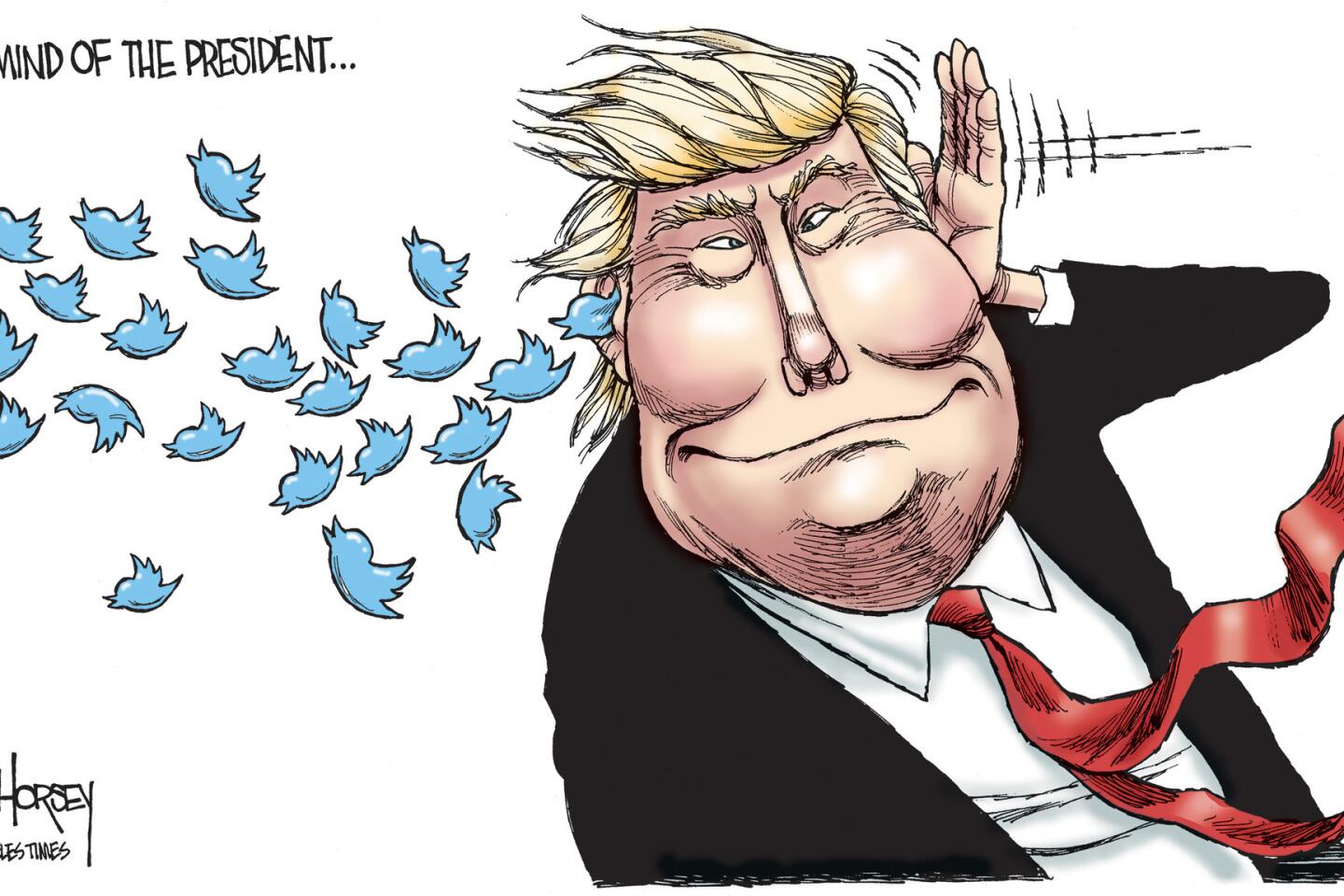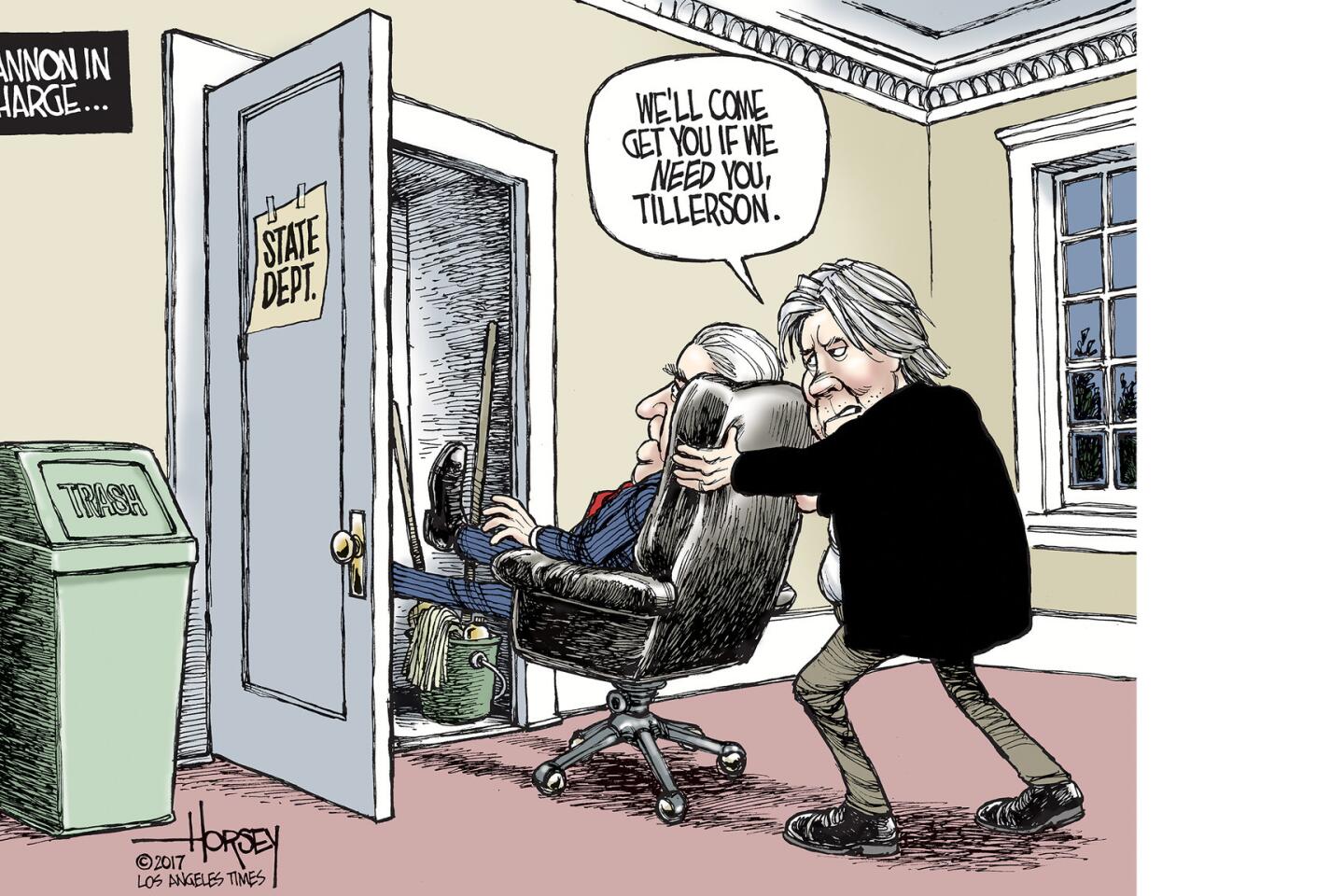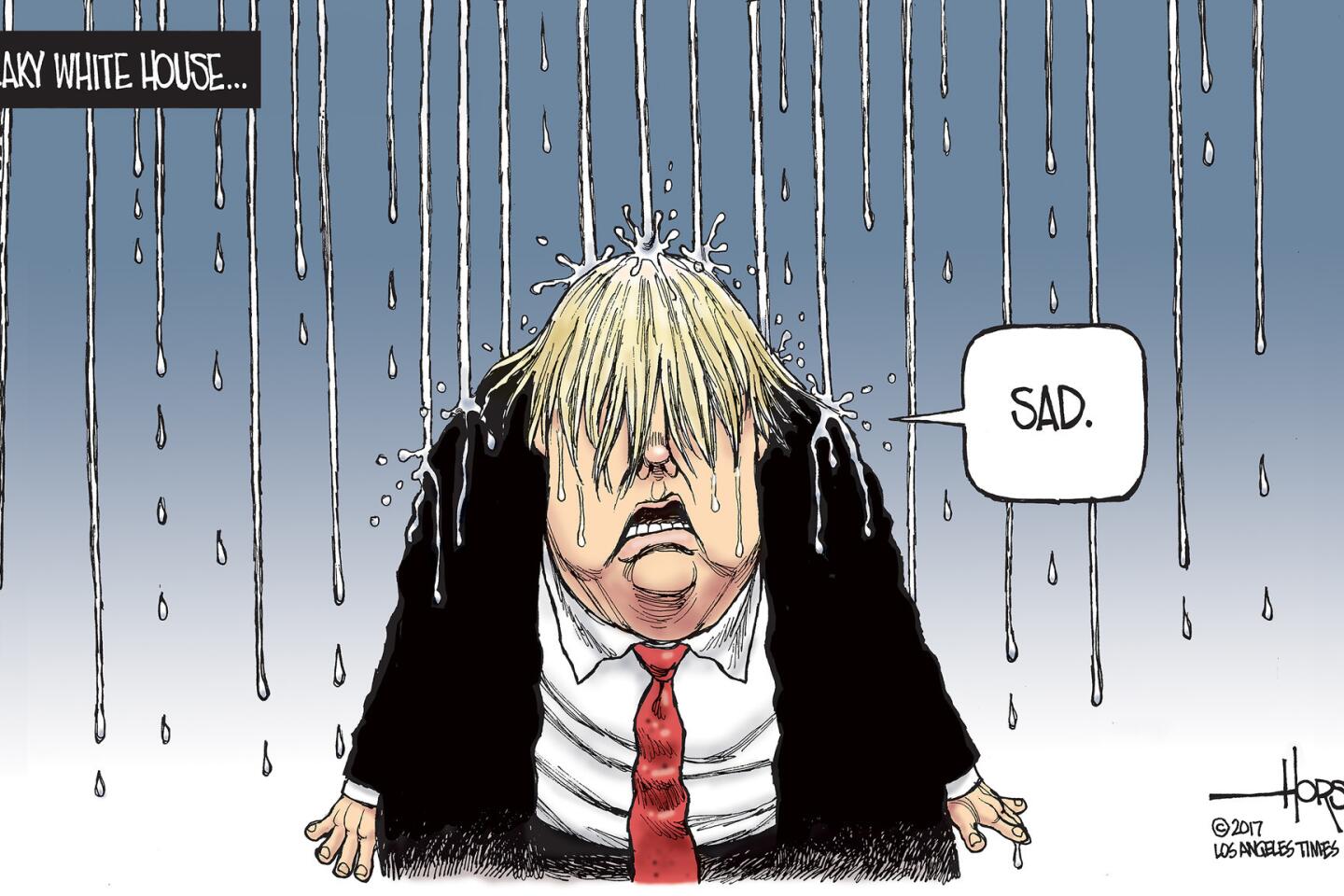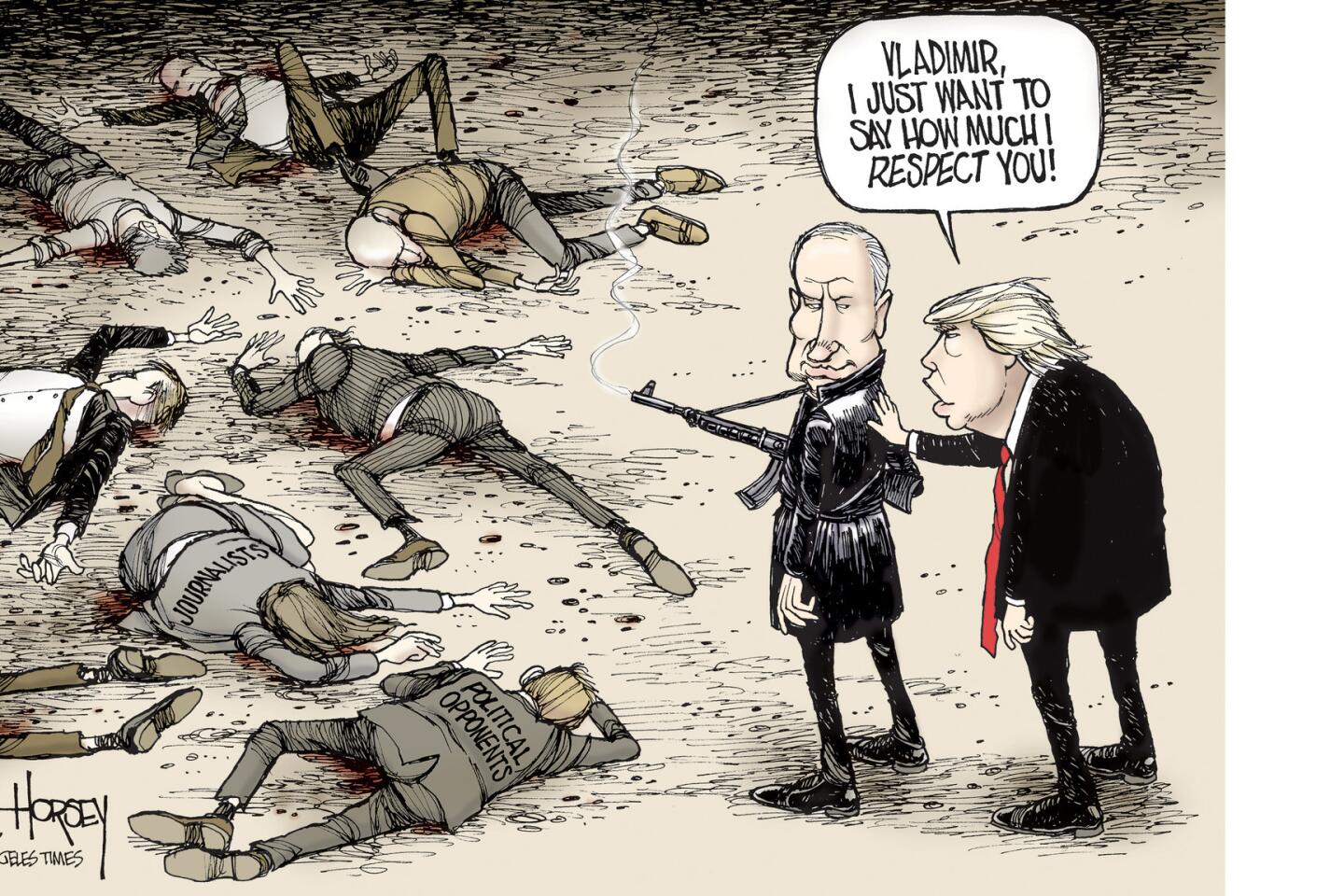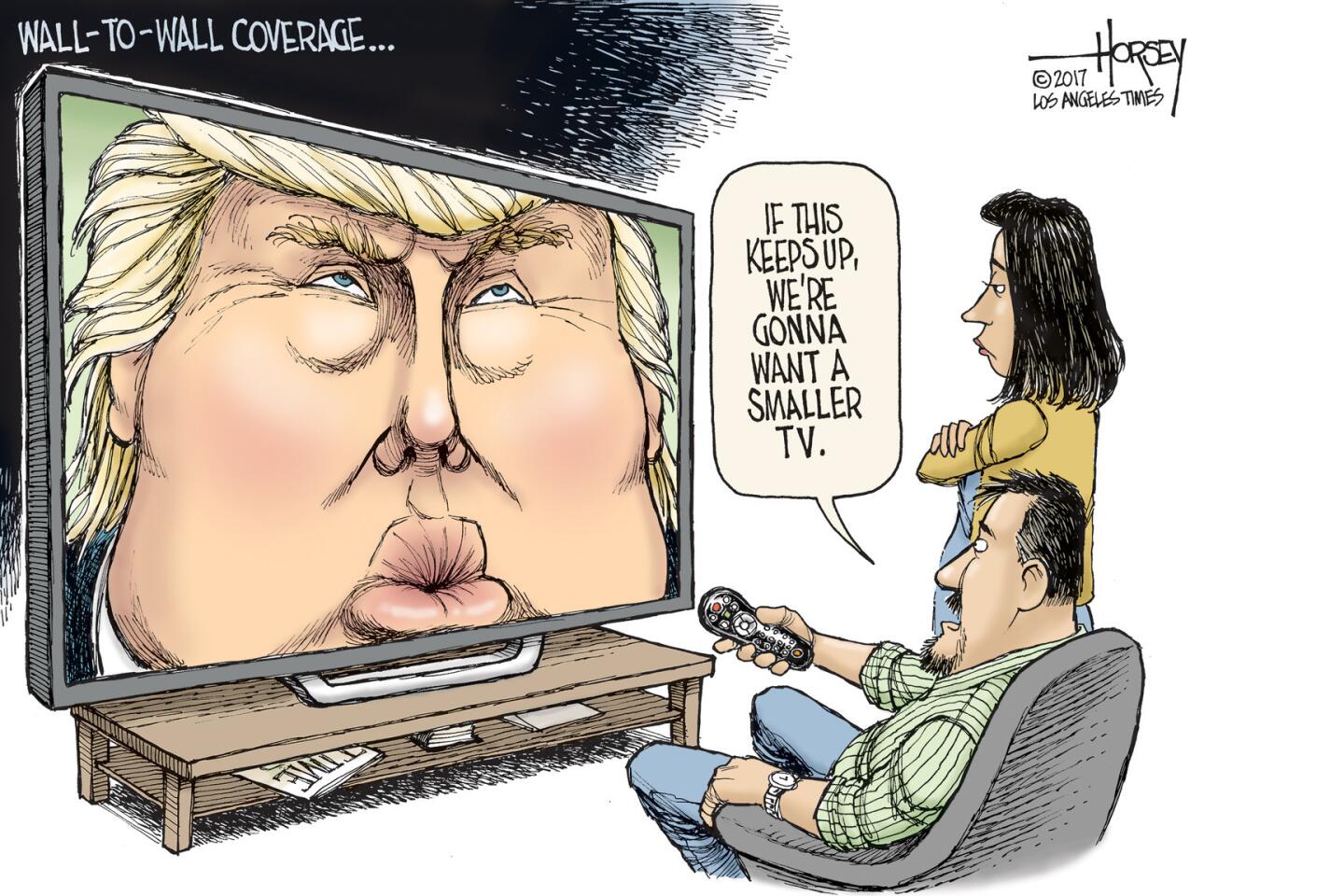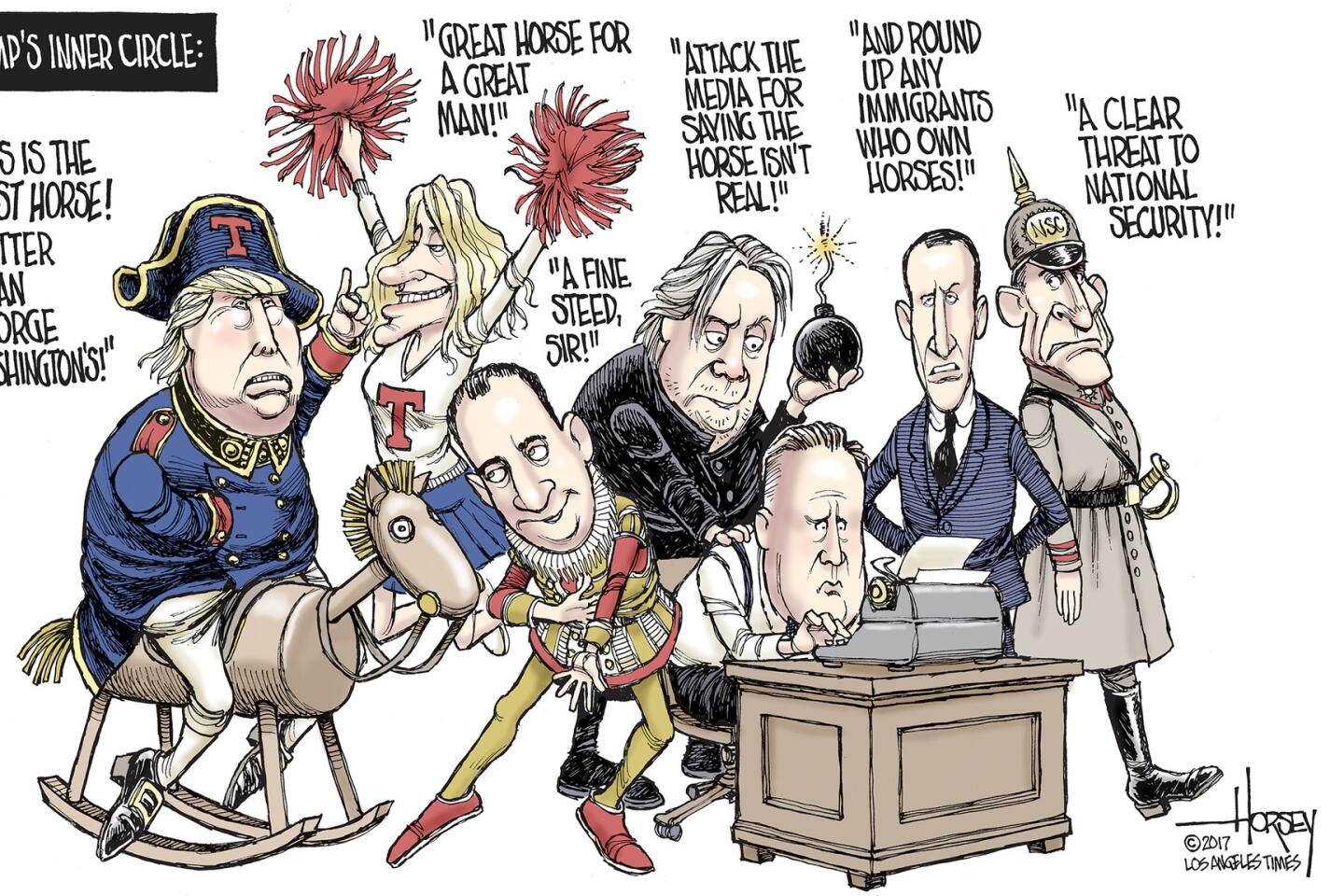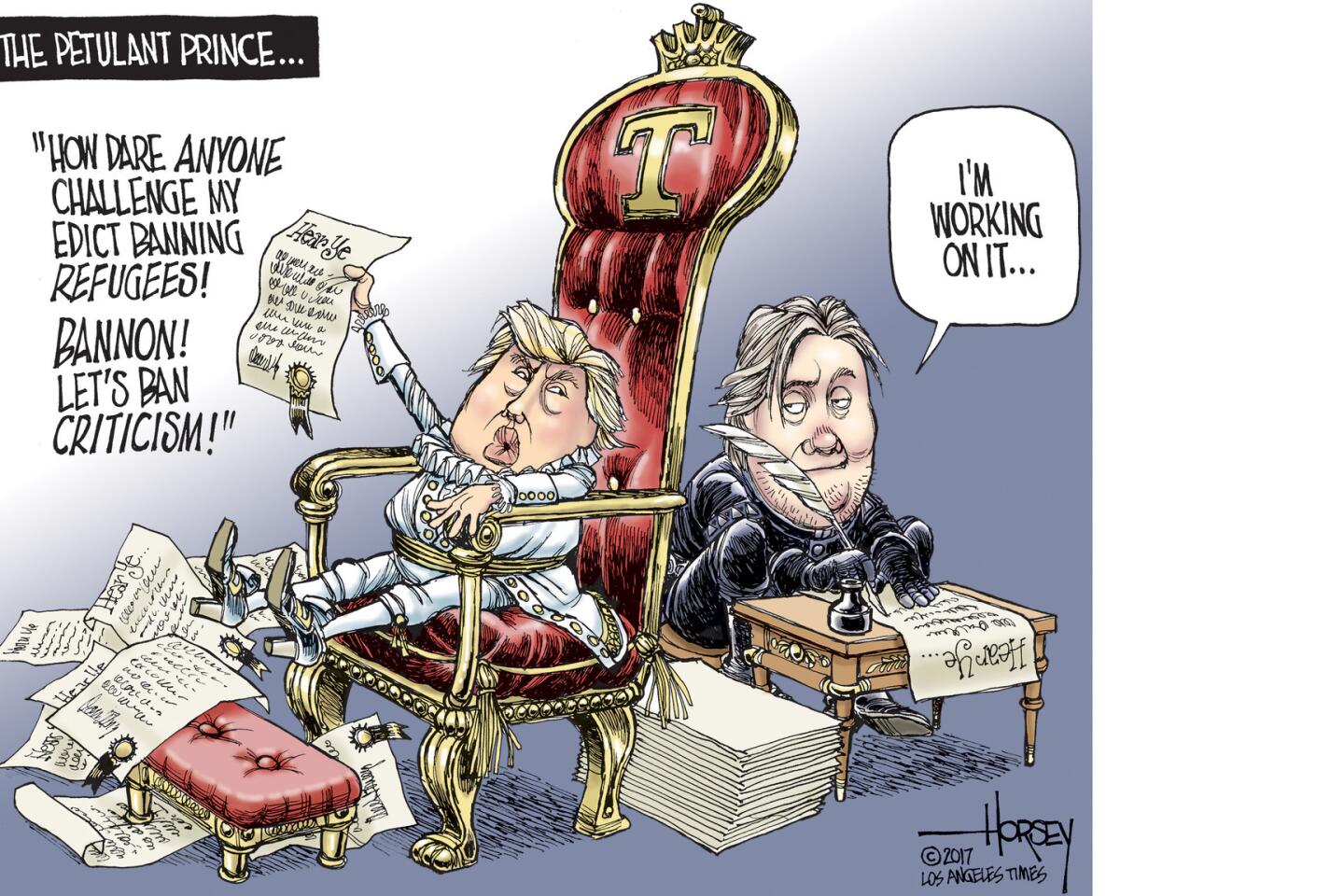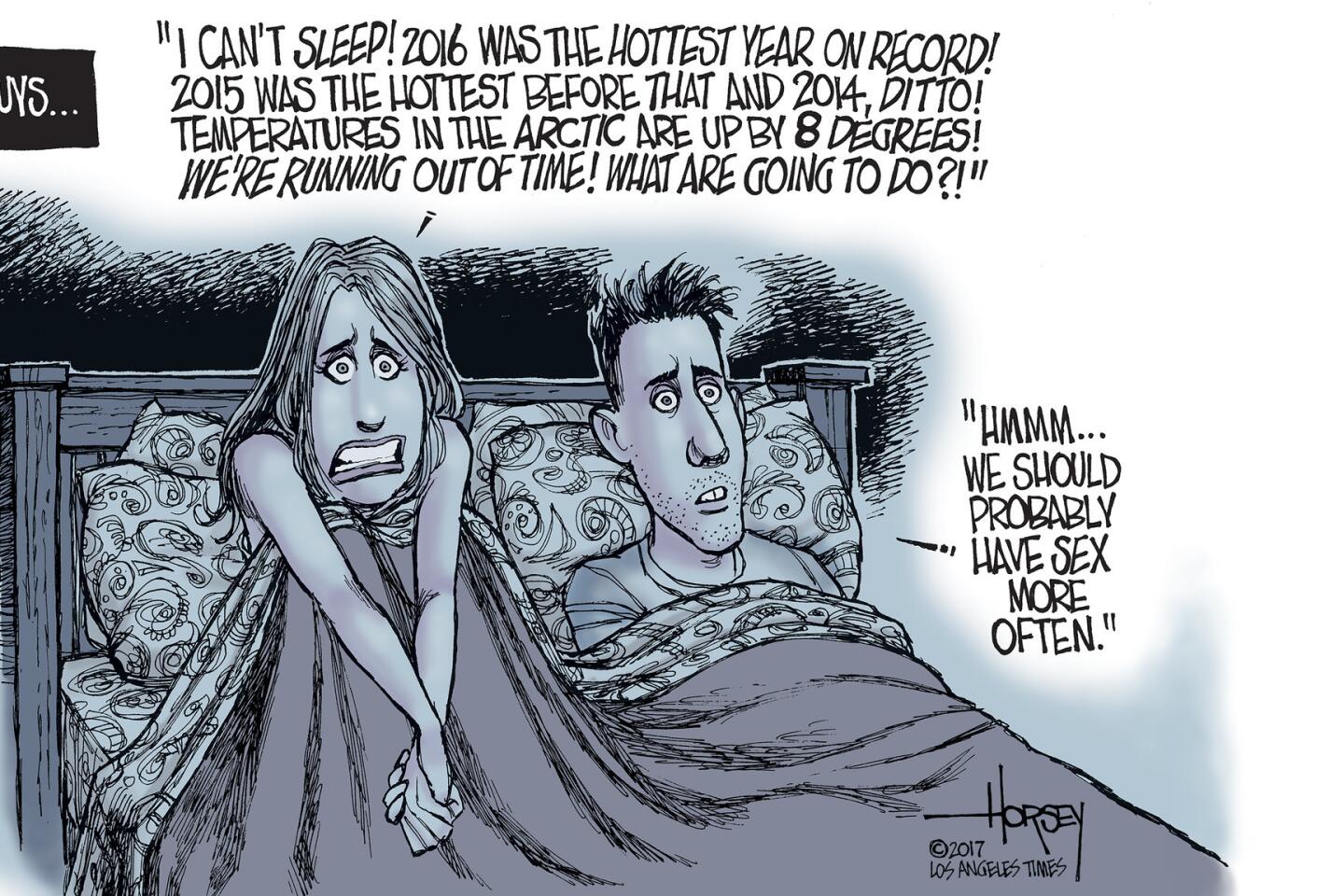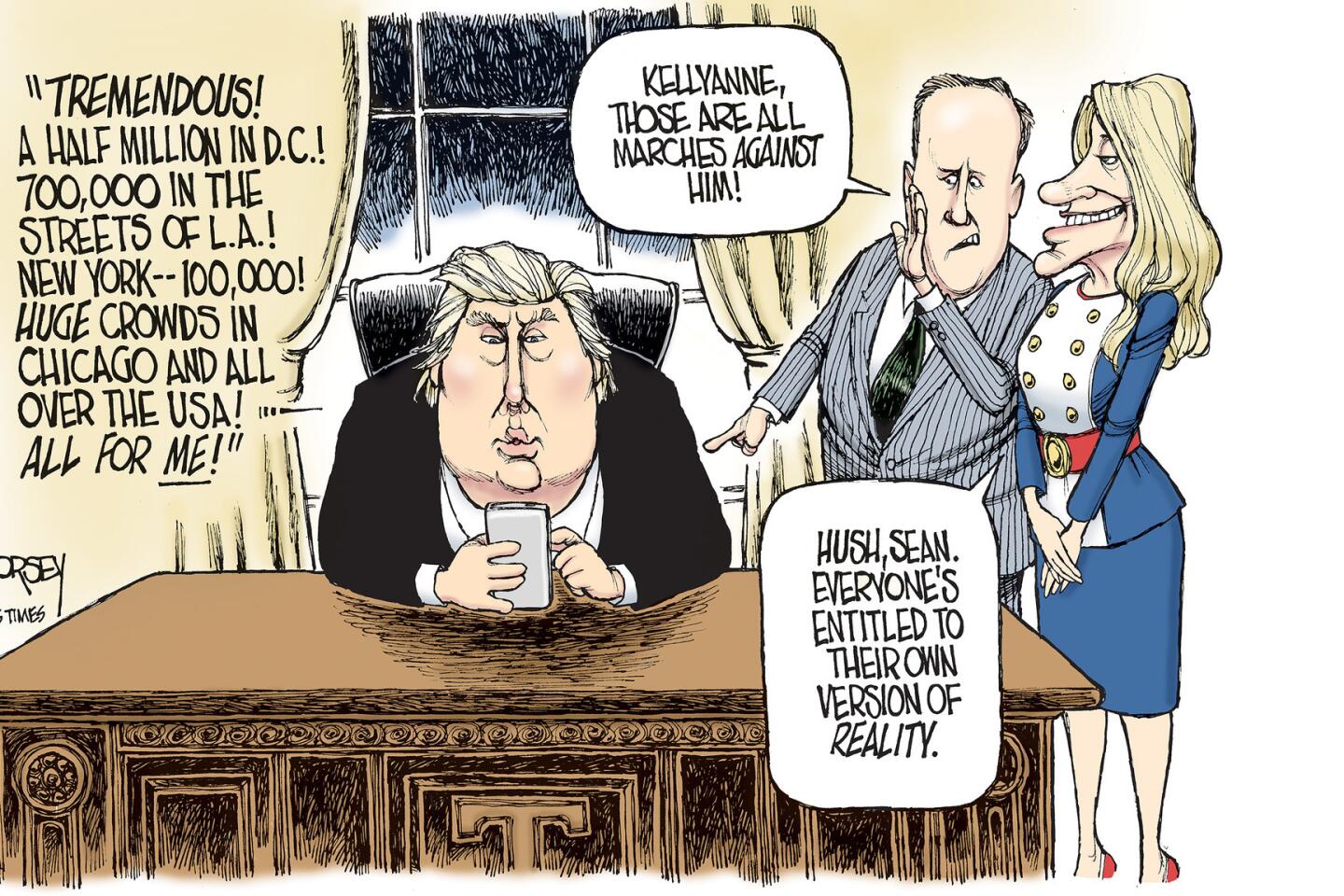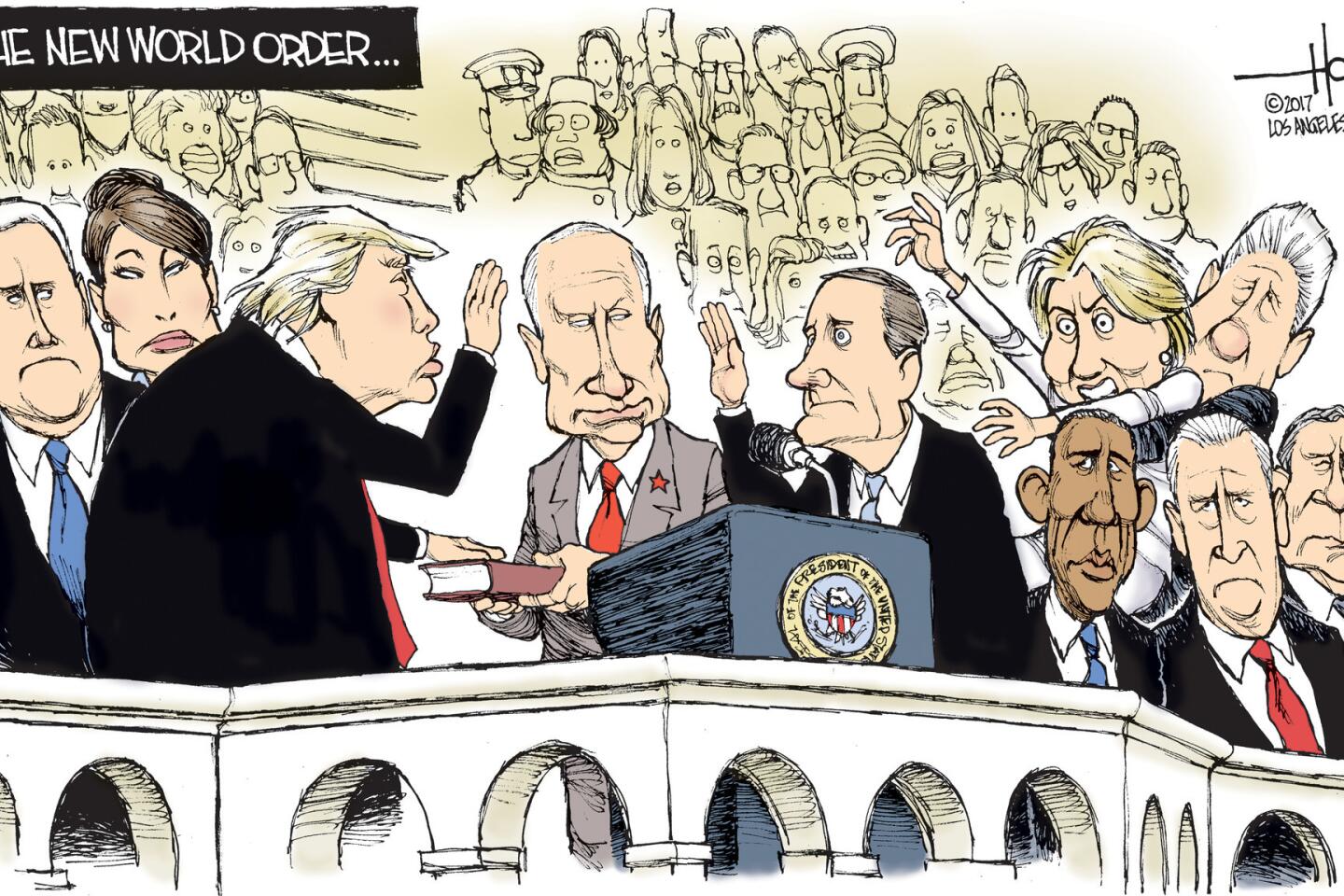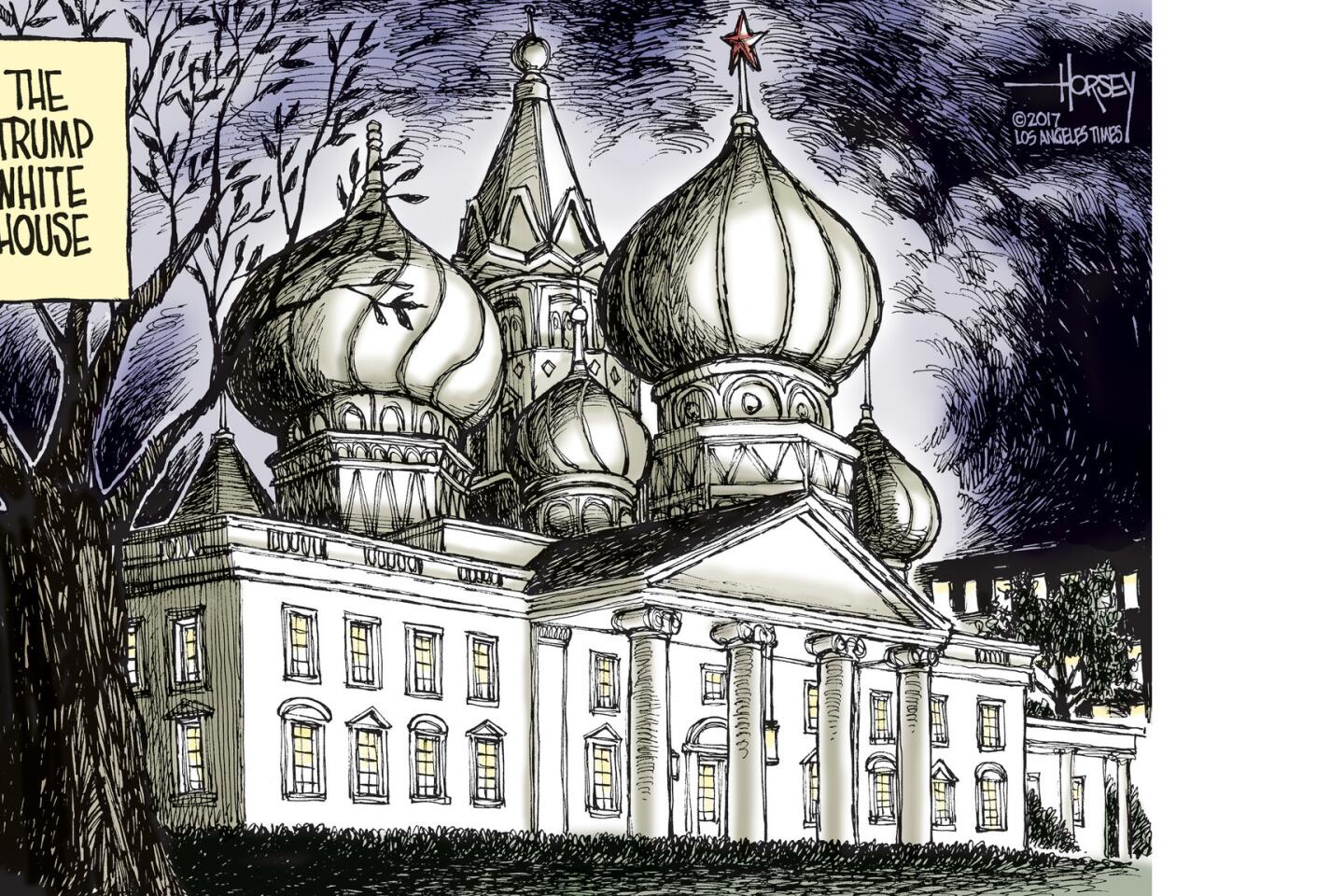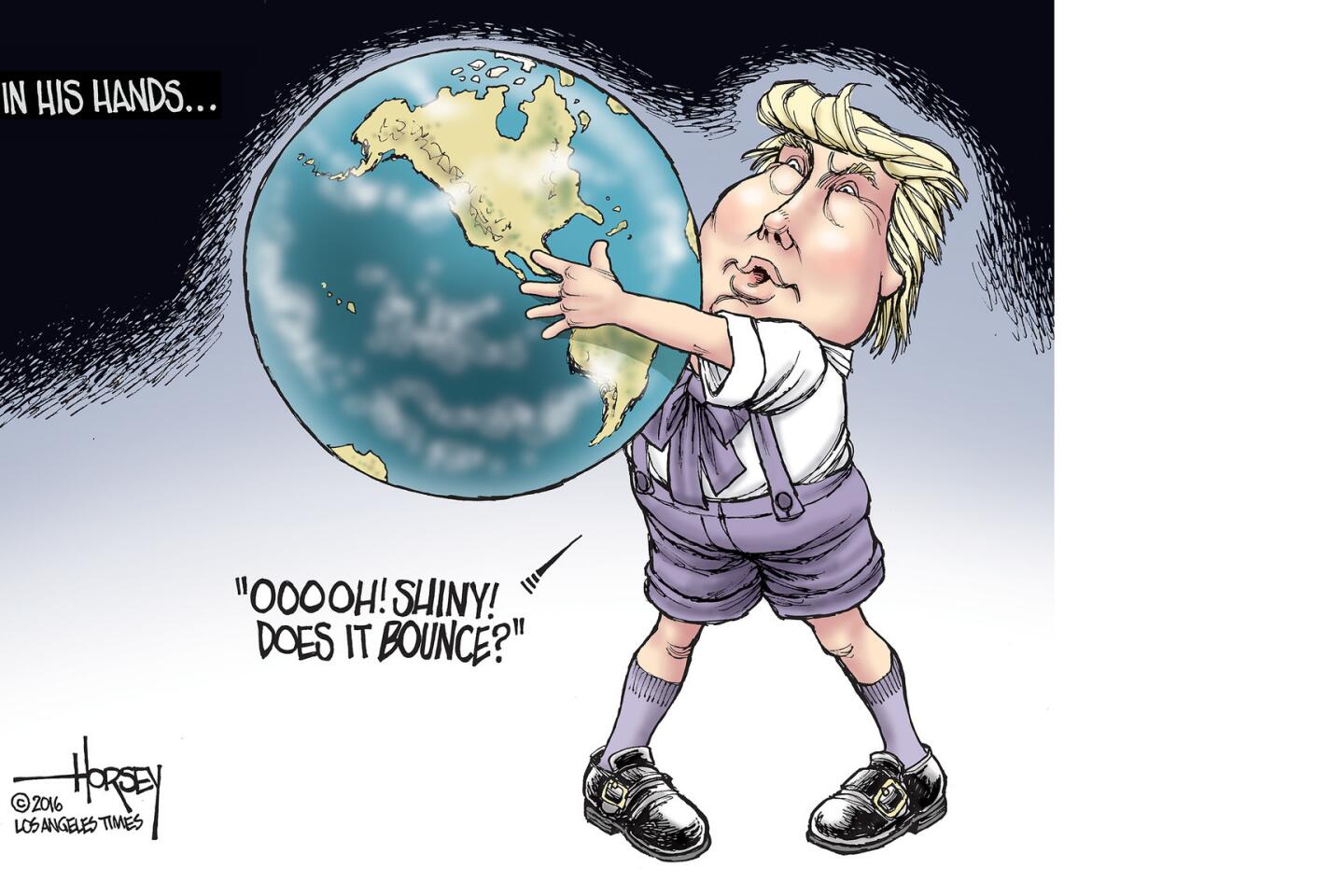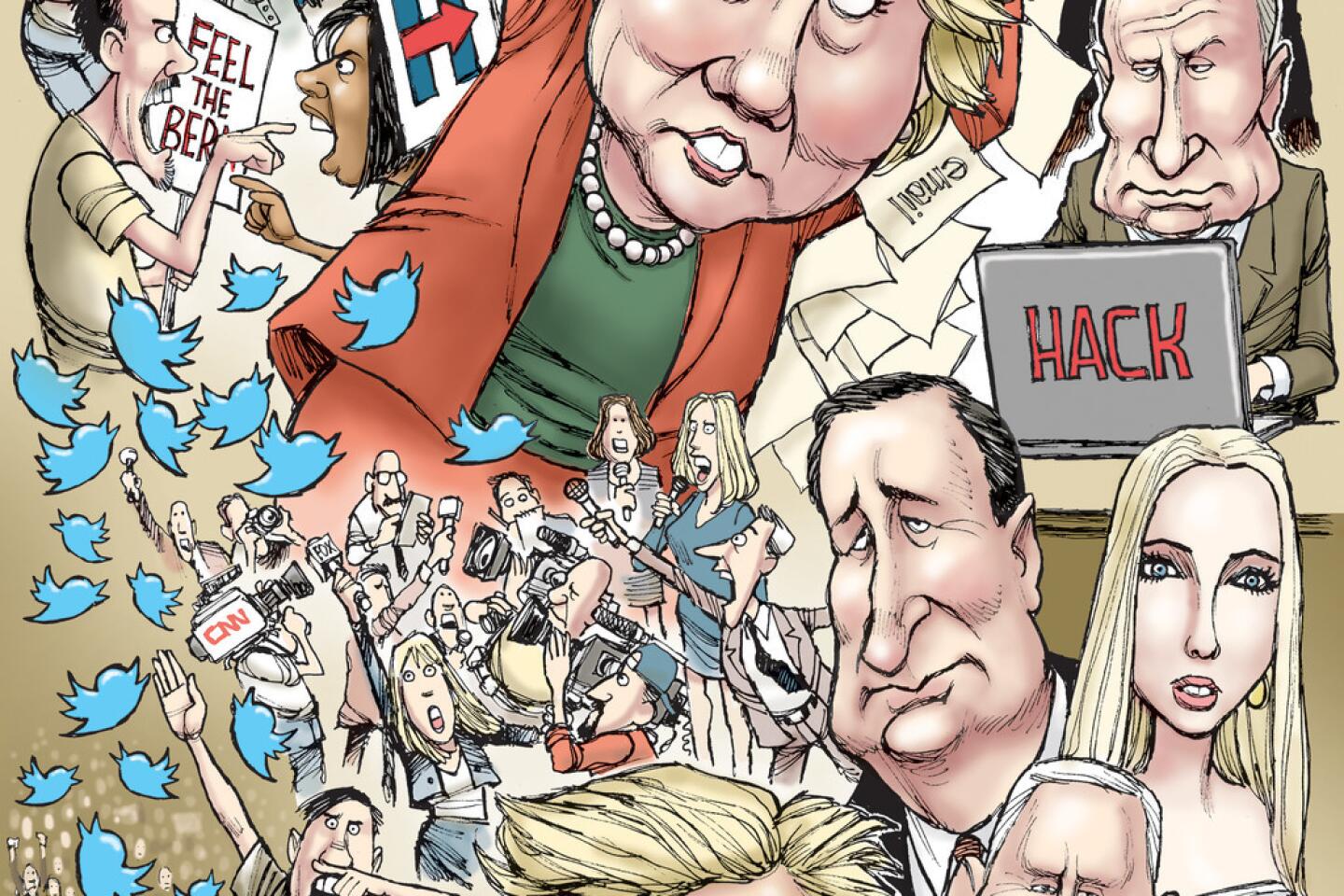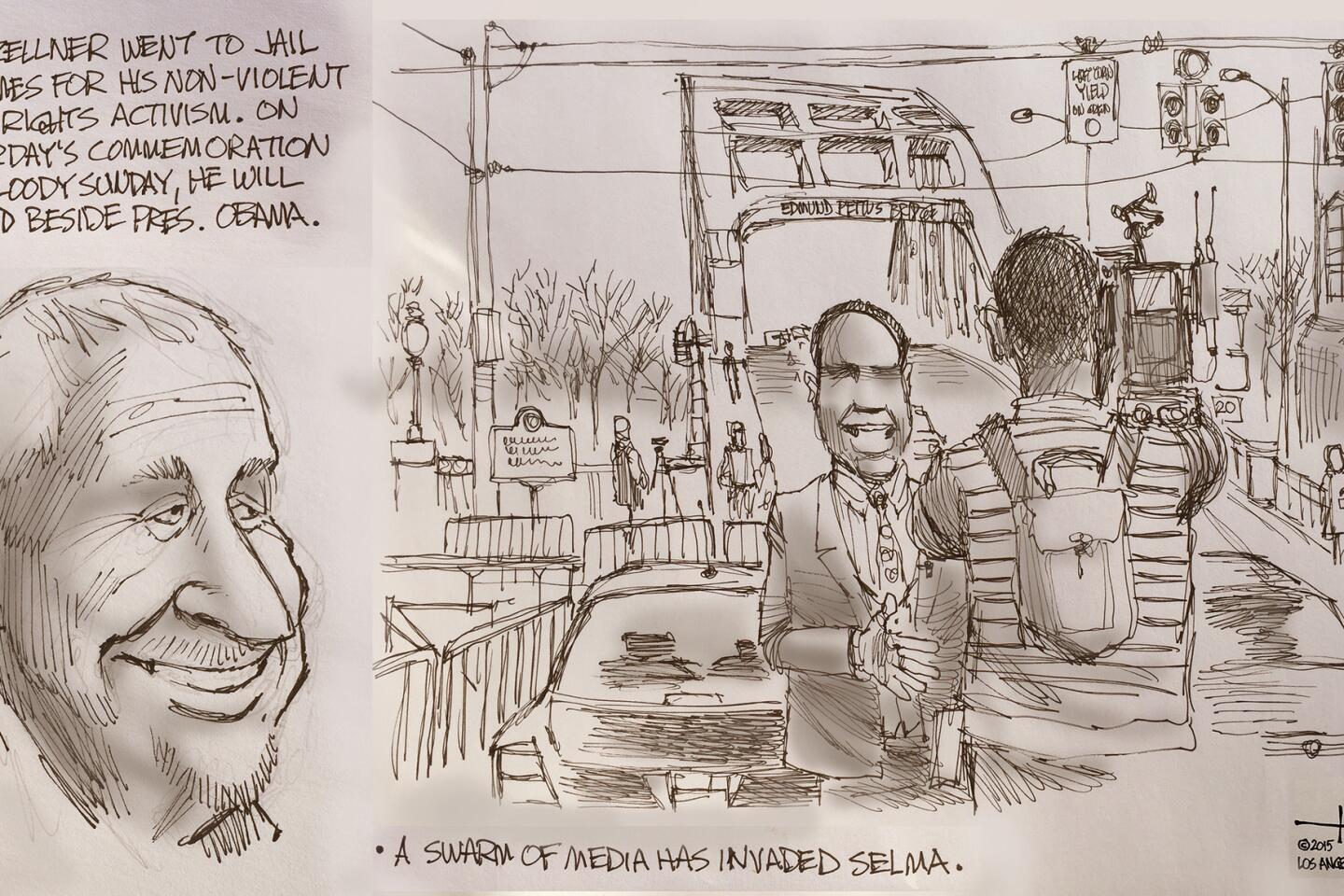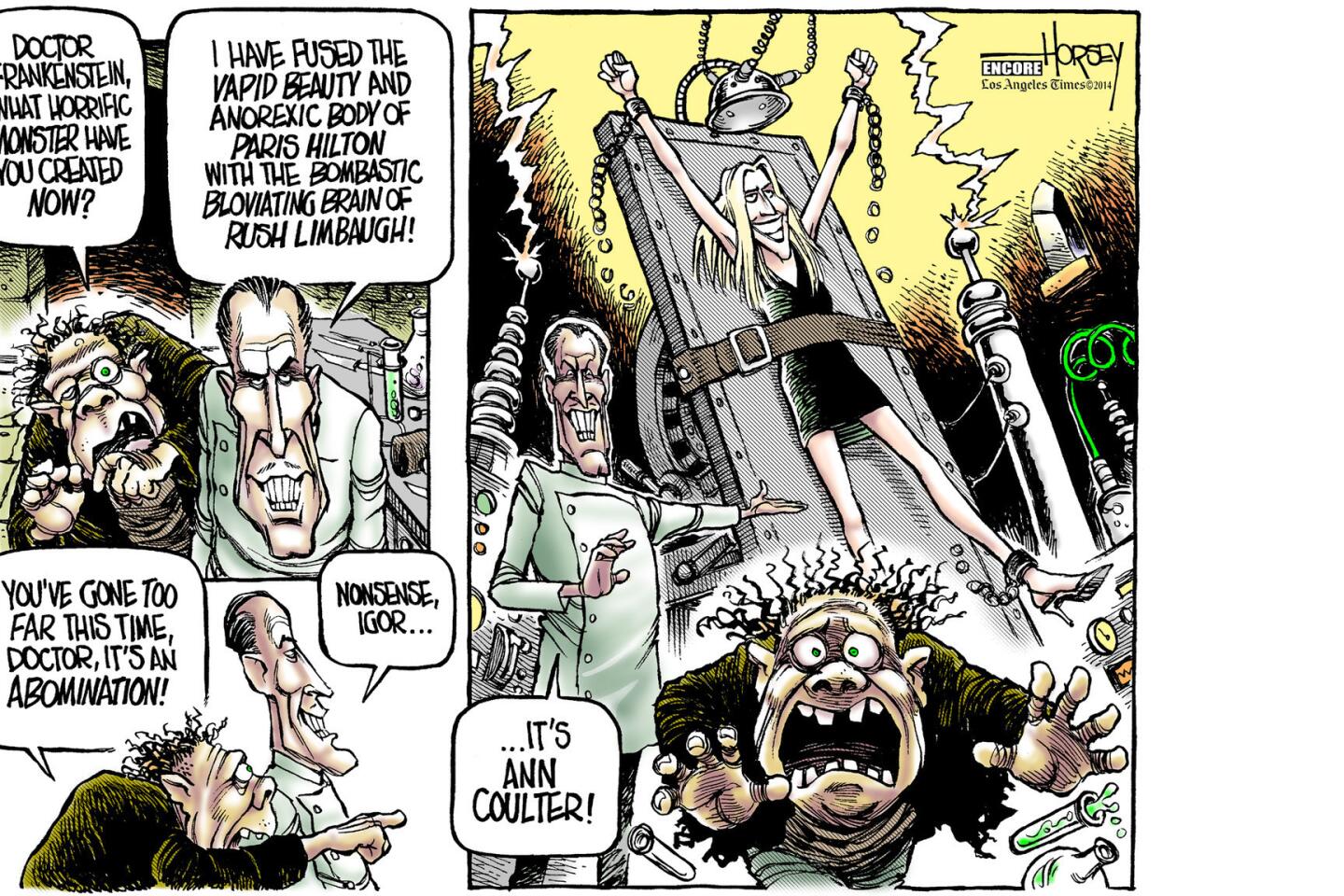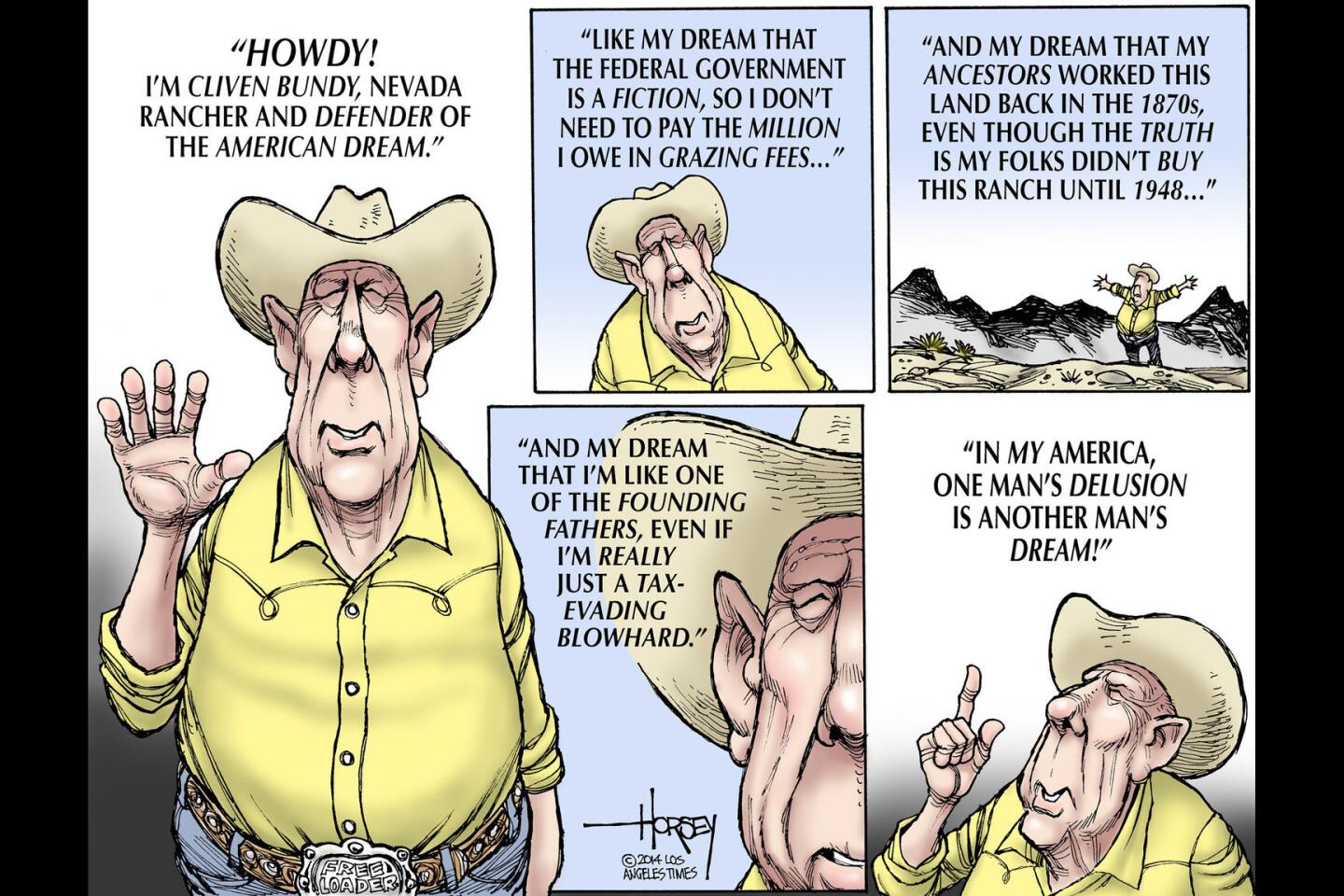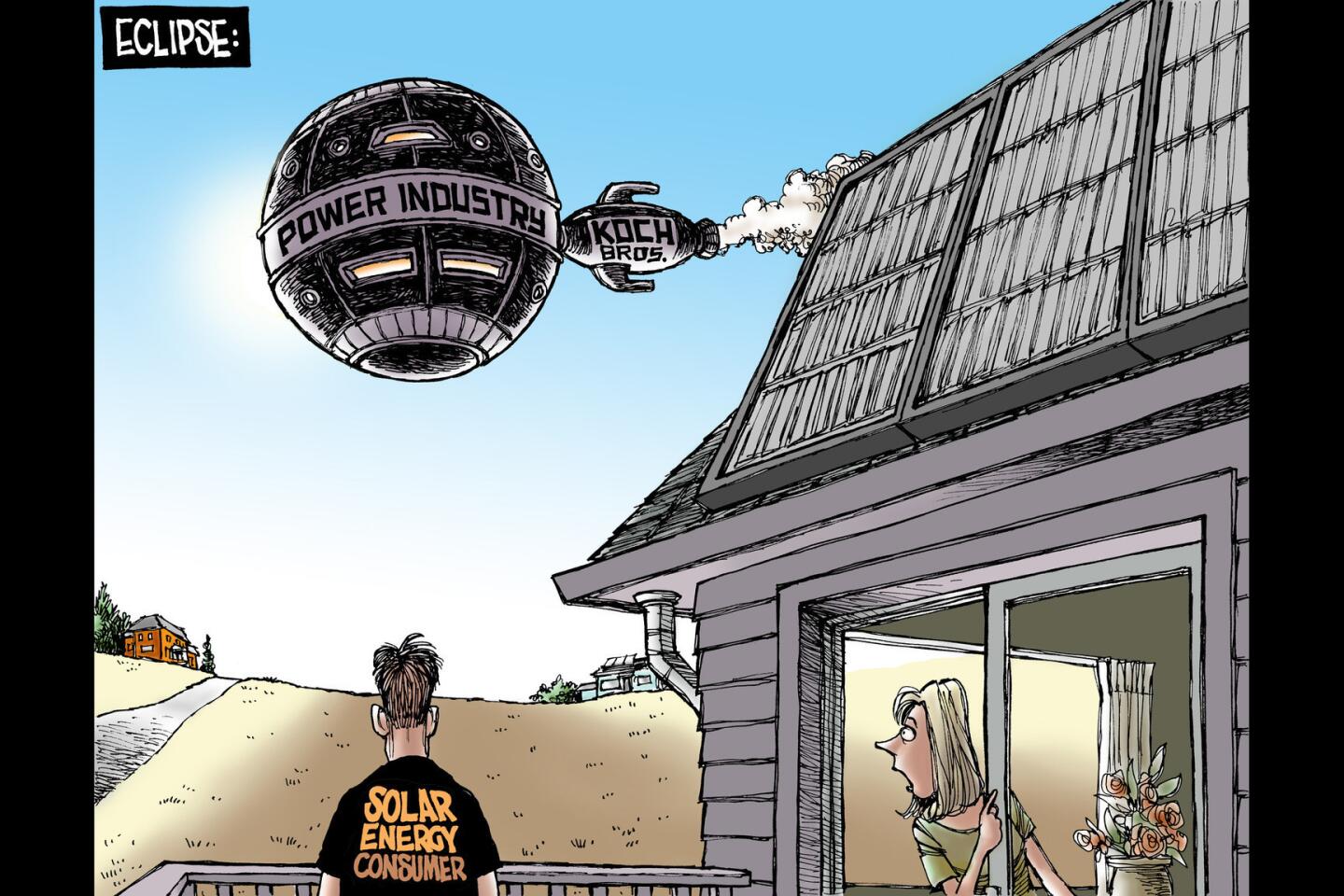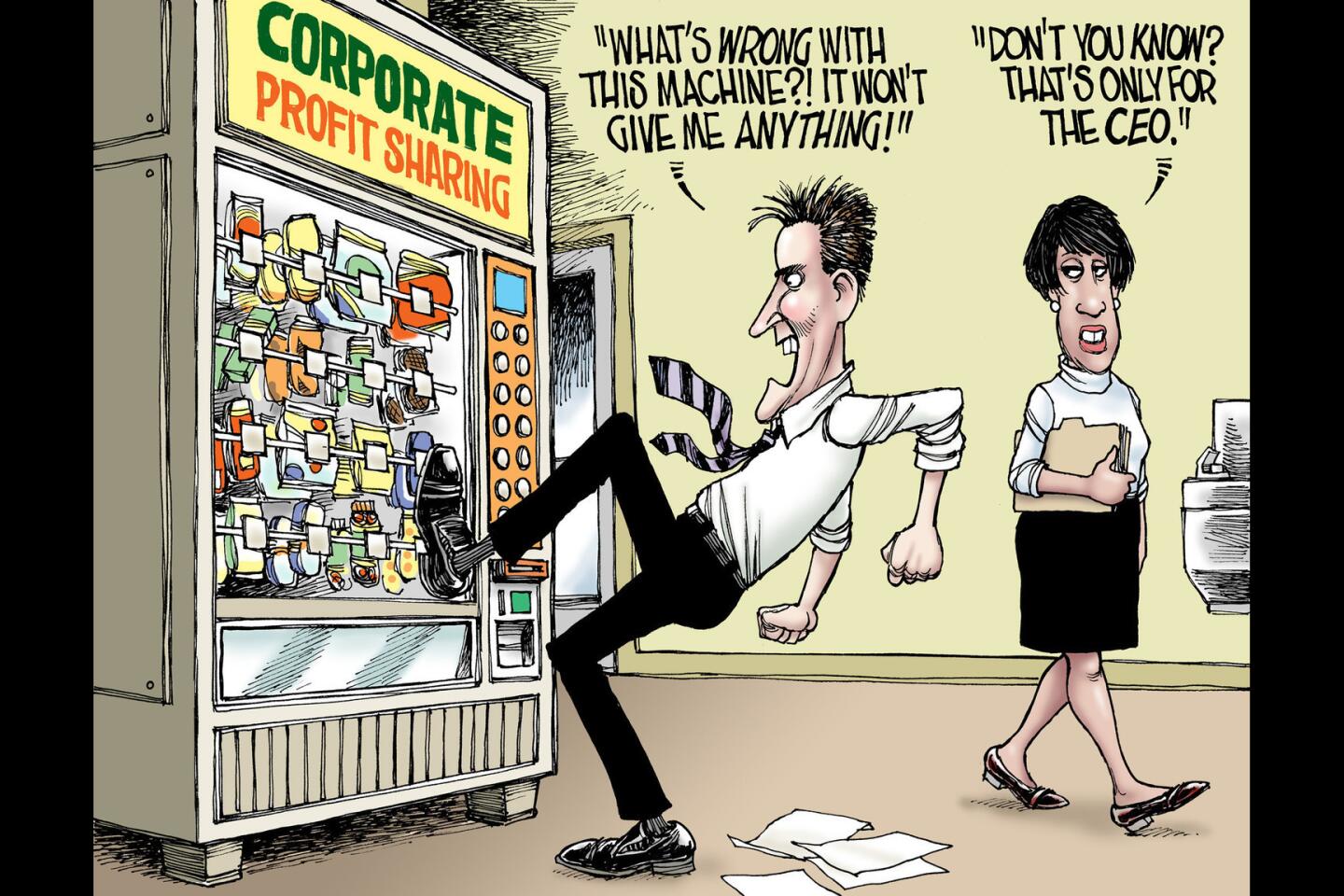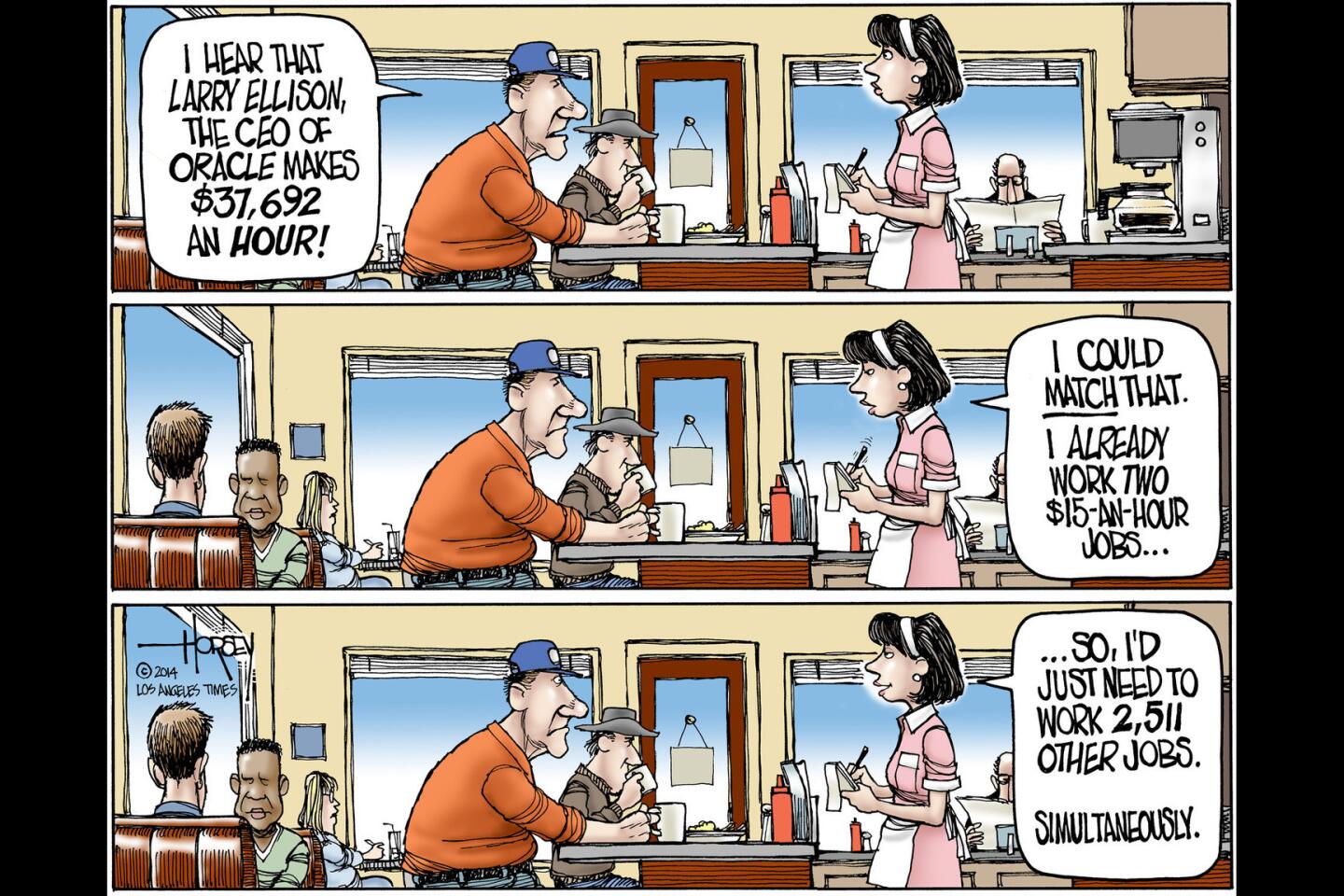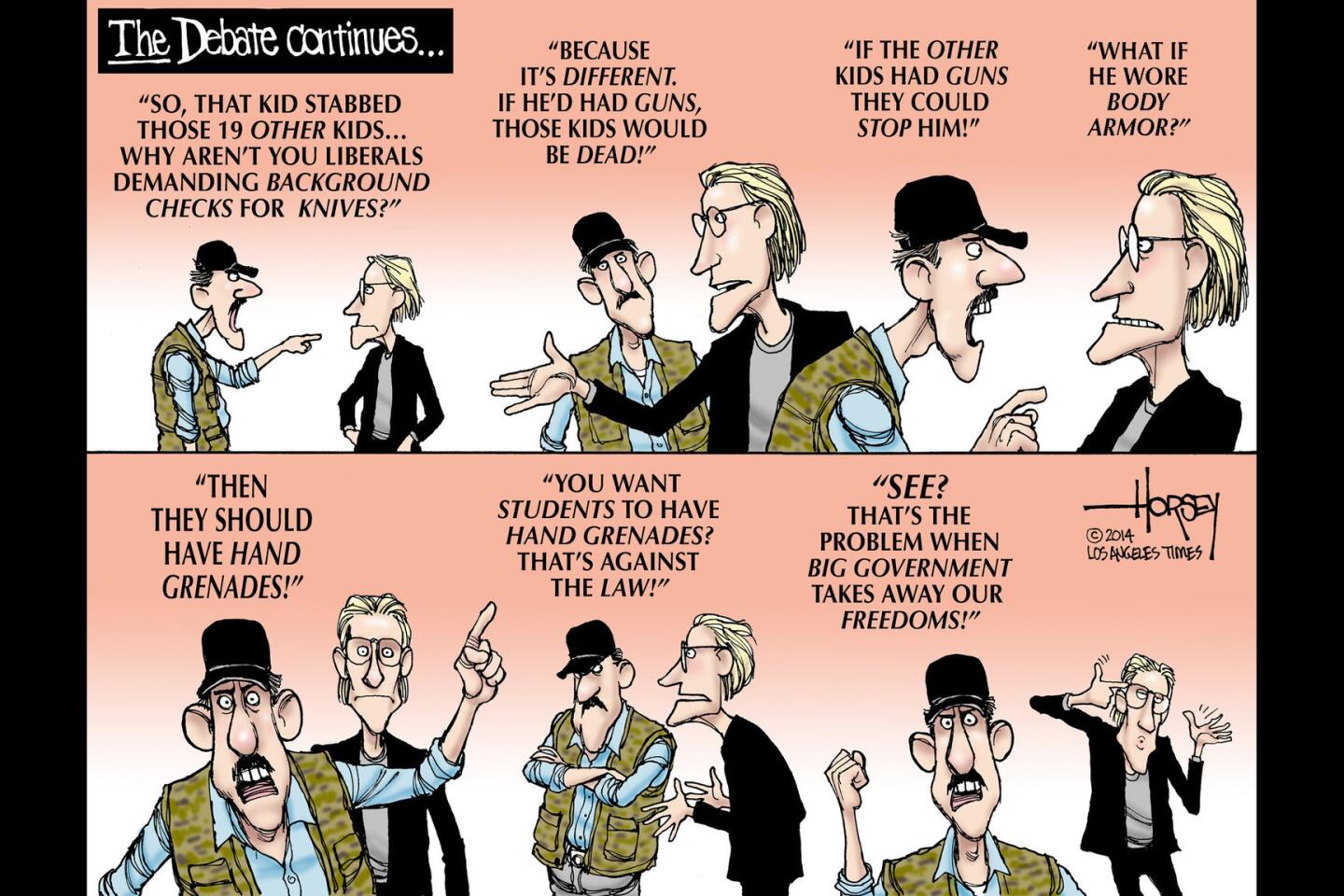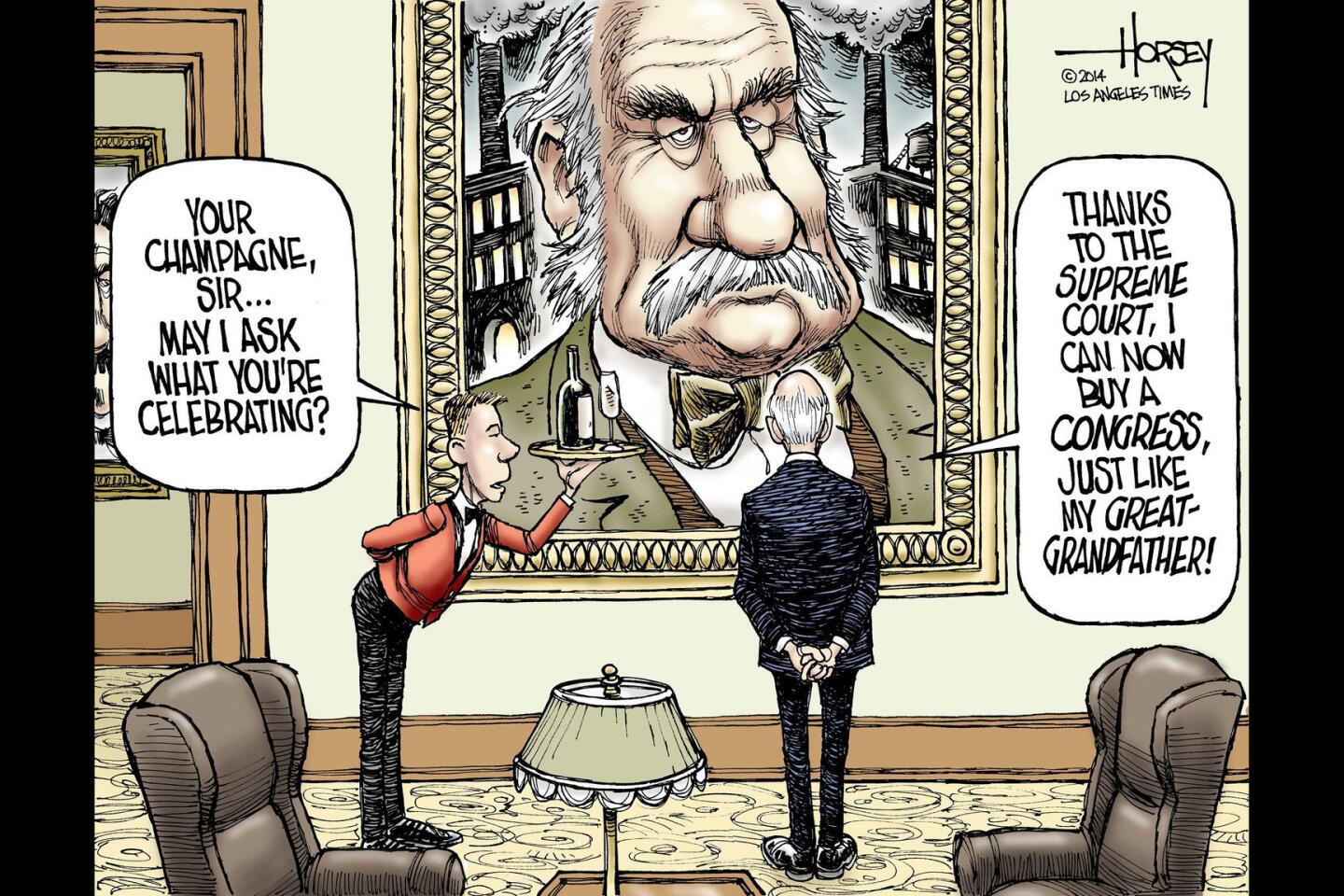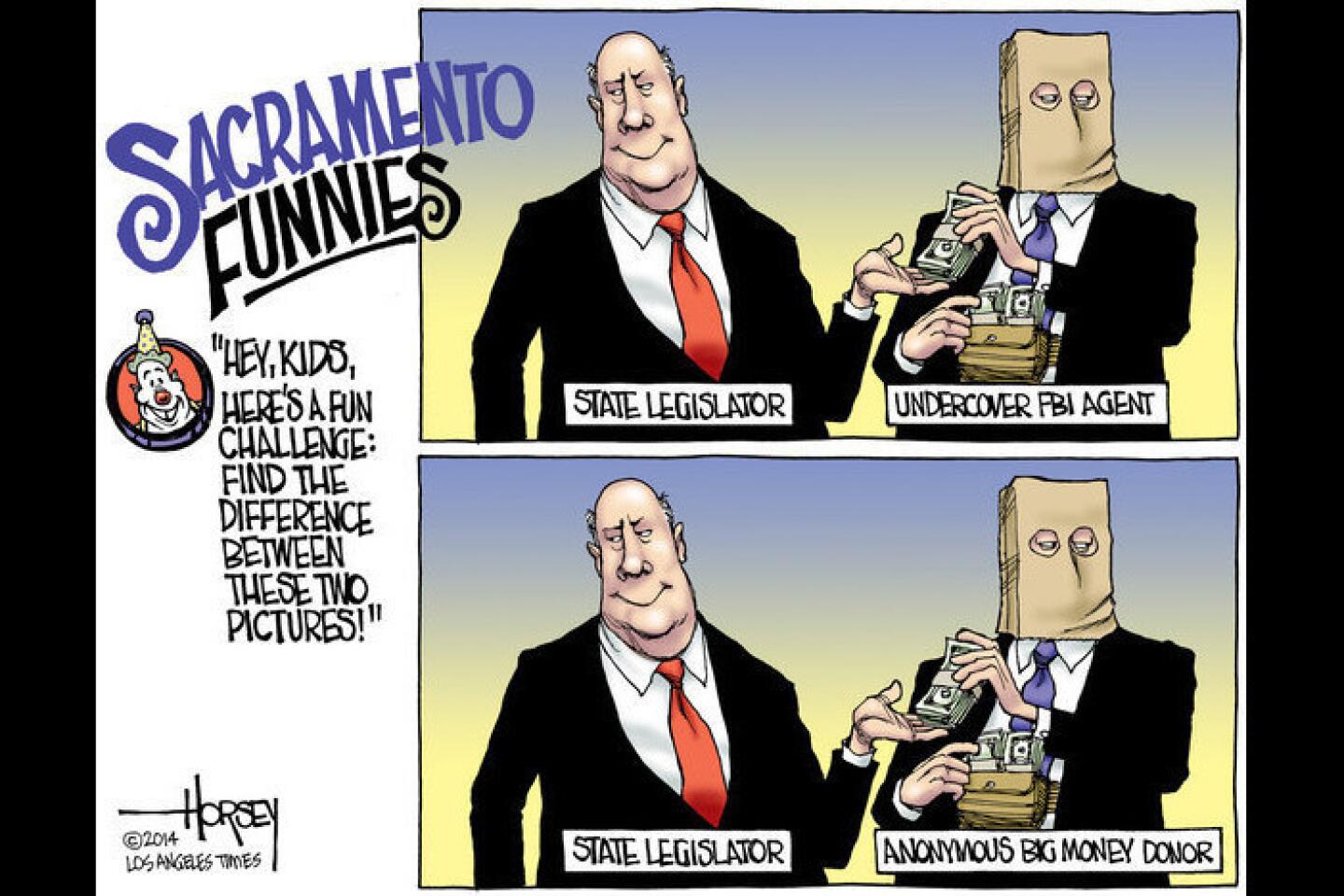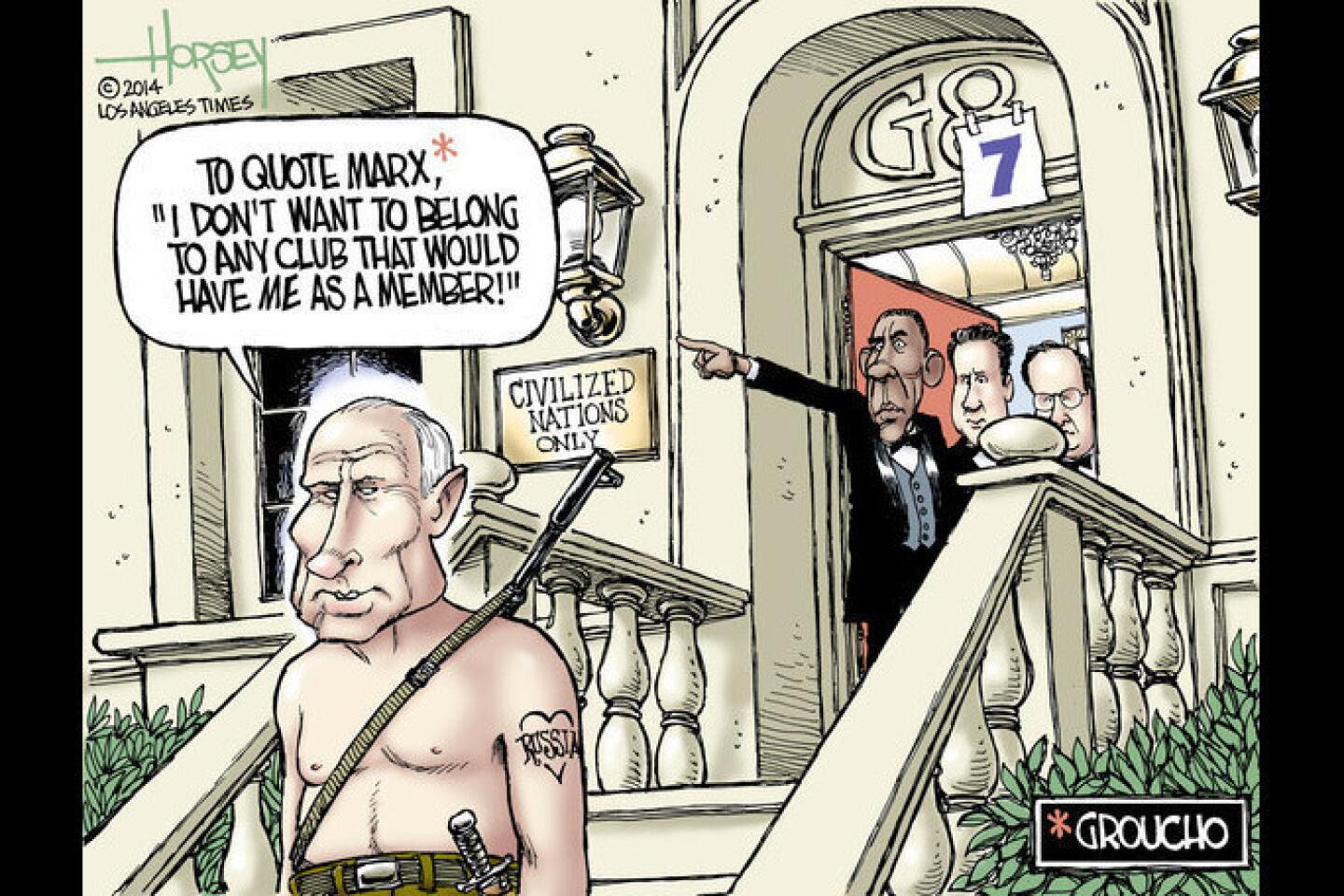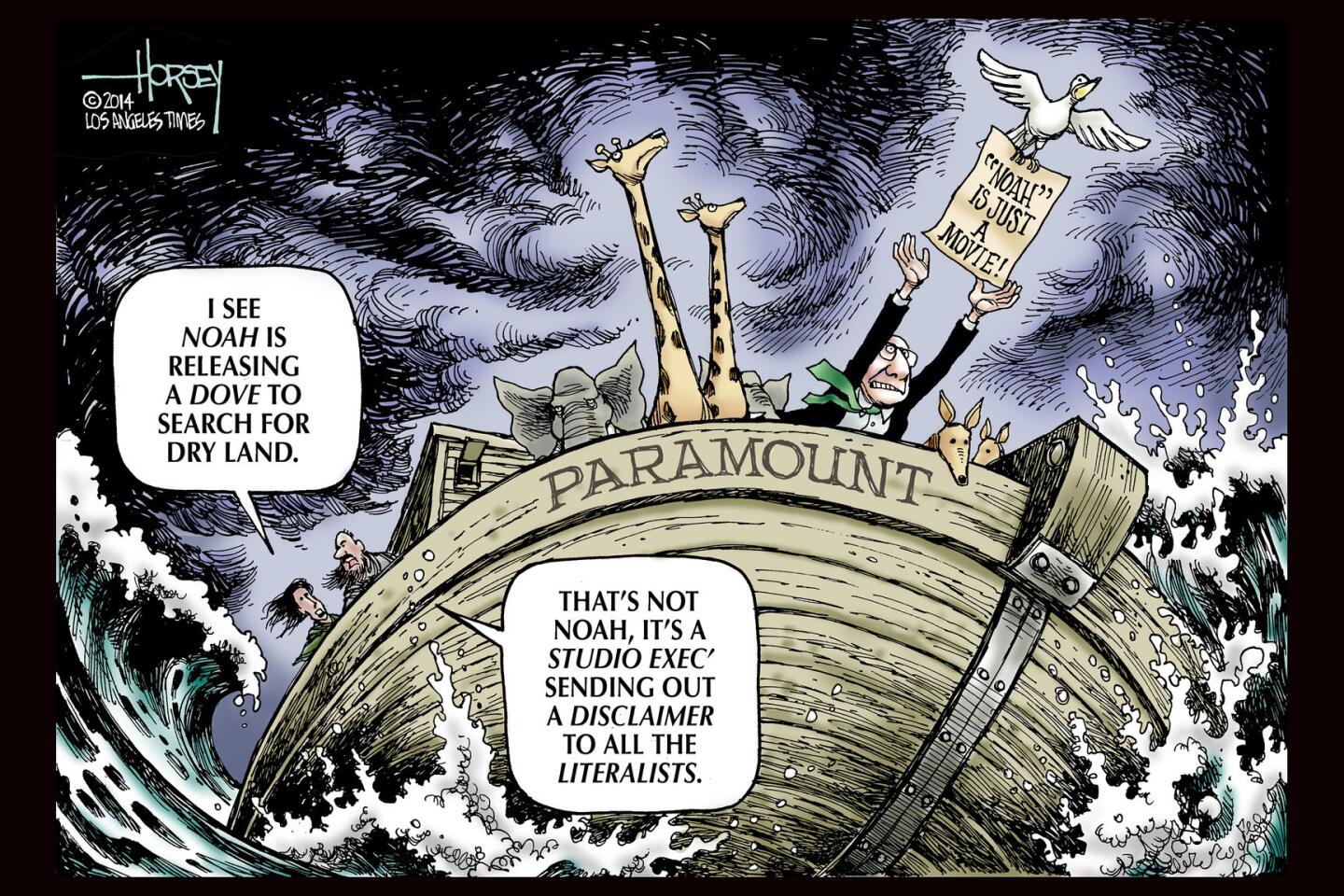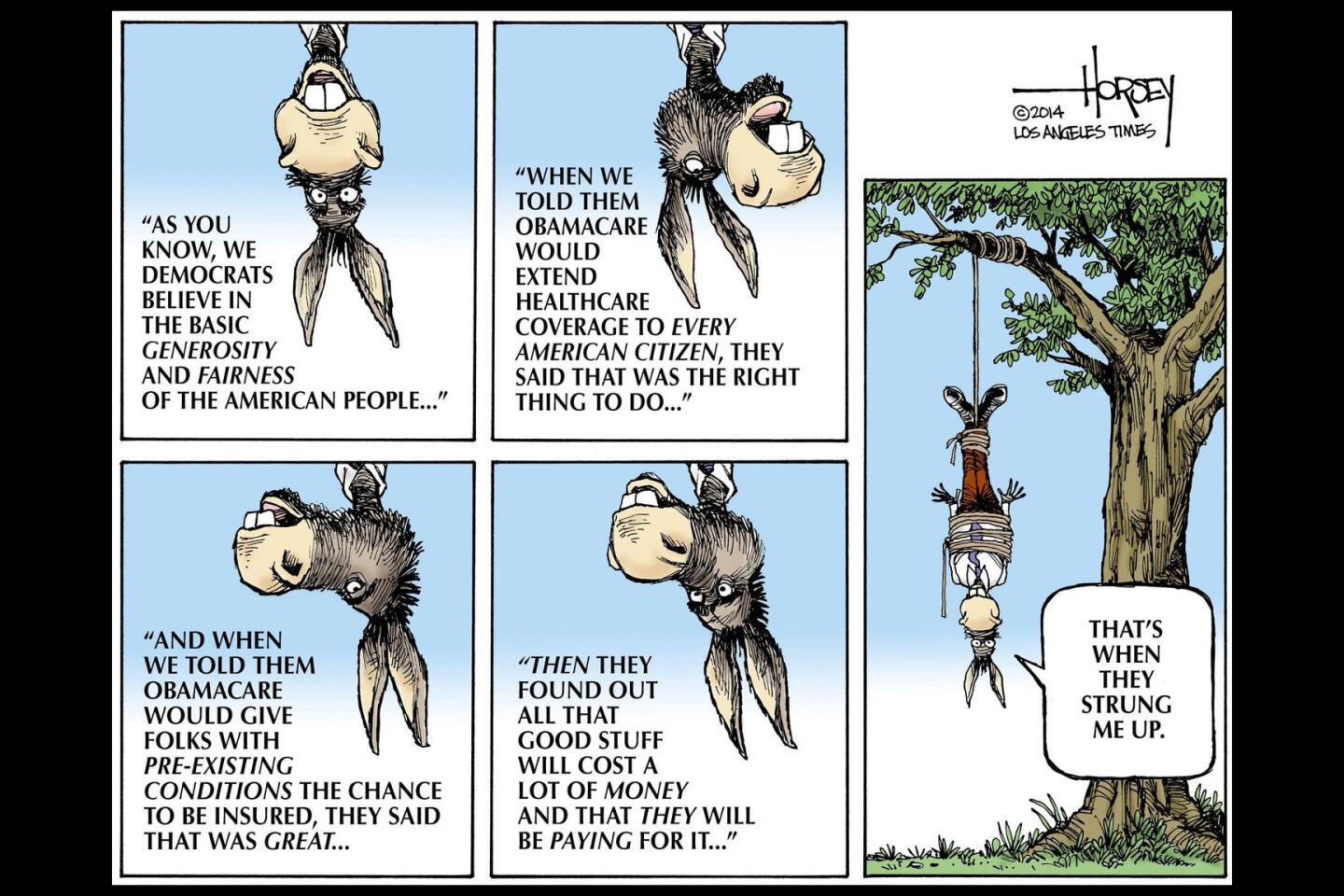Pence and Tillerson’s message to allies: Ignore the tweeter in chief
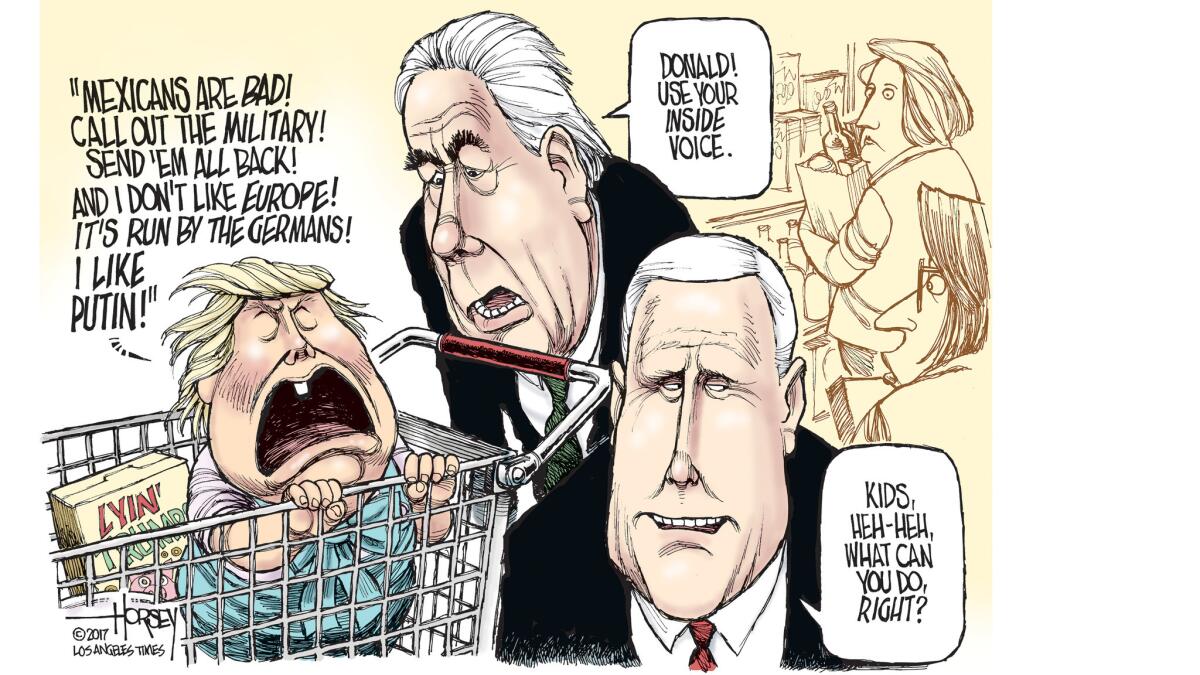
- Share via
The toughest job facing America’s new foreign policy team is explaining away the impulsive and impolitic musings of our country’s tweeter in chief. Donald Trump appears unable to summon the self-discipline needed to keep himself from saying things that make other nations nervous.
Europeans, in particular, are alarmed by Trump’s recent characterization of the European Union as a mere “vehicle for Germany” and his unchecked enthusiasm for “Brexit” which he sees as a not-unwelcome sign of a disintegrating EU.
At the recent European security conference in Munich, Germany, Vice President Mike Pence assured U.S. allies that American support for Europe remains as strong as ever and that Trump was not about to abandon America’s commitment to NATO in favor of his bromance with Russian President Vladimir Putin. Nevertheless, one reporter asked the logical question: Who should be believed, Pence or Trump?
Secretary of State Rex Tillerson had to give similar assurances at the Group of 20 foreign ministers’ gathering in Bonn, as did Defense Secretary James N. Mattis at a NATO meeting in Brussels and U.S. Ambassador Nikki Haley at the United Nations. All of them are delivering the same awkward message: Foreign policy pronouncements made by the president of the United States should not be taken seriously.
Not only is such an assertion unsettling, it is probably not true, no matter how much Pence, Tillerson, Mattis and Haley wish it were. That is because there is someone very close to Trump who is whispering subversive ideas into his ear: senior advisor Stephen K. Bannon. The administration’s alt-right Rasputin is a very harsh critic of international trade and security agreements that extend beyond a one-to-one deal between countries. Bannon is an arch-nationalist who appears to perceive the Europeans as a bunch of globalists who disdain American sovereignty. According to a Reuters report, Bannon undermined the soothing words of the foreign policy team during a meeting with the German ambassador in which Bannon described the EU as a seriously flawed enterprise.
Just as Bannon aims to, as he says, “deconstruct the administrative state” and return U.S. domestic policy to the McKinley era, he also seems eager to see the international order revert to the rival nationalisms of the 19th century. There are compelling reasons such a radical shift away from the foreign policy followed by every American president since World War II would be dangerous. Pence, Tillerson and the rest appear to recognize how lfoolhardy it would be.
Unfortunately, no matter what his apologists claim, the president seems not to share their rational understanding of international relations. Just as he did as a candidate, Trump, when free to speak without a preapproved script, displays all the sophistication of a drunk blowhard ranting on a bar stool. Disturbingly, Trump doesn’t even drink, so he lacks alcohol as an excuse for his state of mind.
The Europeans have good reason to be freaked out. And they aren’t the only ones.
Follow me at @davidhorsey on Twitter
More to Read
A cure for the common opinion
Get thought-provoking perspectives with our weekly newsletter.
You may occasionally receive promotional content from the Los Angeles Times.

